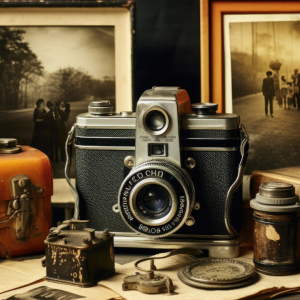From ancient coins buried in Roman soil to shelves lined with Funko Pops in modern living rooms, one thing has remained constant across human history: our irresistible urge to collect.
But what drives people to hunt, gather, and preserve objects — sometimes at great cost and effort? The answer lies not just in culture or economics but deep within our psychology. Collecting isn’t just a hobby. It’s a window into the human mind.
A Tradition as Old as Humanity
Archaeological evidence shows that humans have been collecting for thousands of years. Early societies prized shells, bones, and stones, often imbuing them with spiritual or social significance. Ancient rulers amassed treasures and coins, not only as wealth but as symbols of power and legacy.
As the Smithsonian notes, collecting has always been a way to preserve history and identity, connecting individuals to the broader story of human civilization.
The Psychological Triggers
1. Control & Order 🗂️
In a chaotic world, collecting provides a sense of control. Organizing items into categories, sets, or displays offers clarity and structure. Every neatly stacked comic book or carefully cataloged stamp brings a sense of order that soothes the mind.
2. Nostalgia & Memory 🕰️
Collectibles often serve as time machines. A vinyl record might transport someone back to their teenage years, while a childhood toy rekindles joy from decades ago. According to National Geographic, nostalgia is a powerful psychological driver of collecting — it transforms objects into emotional anchors.
3. Identity & Expression 🎭
Collections are extensions of who we are. They signal passions, status, and individuality. A sneaker wall says something different than a room filled with antique maps — both speak volumes about the collector’s identity and values.
4. The Thrill of the Hunt 🔎
The pursuit itself can be addictive. Whether scouring flea markets, bidding in auctions, or chasing rare digital drops, the adrenaline rush of finding “the one” activates the brain’s reward system. Collecting is, in many ways, a treasure hunt that never ends.
Why We Can’t Stop
The act of collecting fulfills psychological needs: security, creativity, self-expression, and even community belonging. It taps into primal instincts of survival (gathering resources) while also offering joy, curiosity, and pride.
It’s no wonder that from ancient emperors to today’s Pokémon card traders, collecting has remained one of humanity’s most universal behaviors.
How Collectiblepedia Fits In
At Collectiblepedia, we celebrate and explore this timeless human instinct. Our platform makes sense of the urge to collect by:
- Cataloging Knowledge Daily – Fresh entries about collectibles, from rare antiquities to the newest pop culture phenomena.
- Exploring the “Why” Behind Collectibles – Insights into what drives value, passion, and historical significance.
- Building a Knowledge Community – A place where collectors, researchers, and enthusiasts connect and share.
Collectiblepedia isn’t just about the what of collecting — it’s about the why. By turning passion into knowledge, we give collectors context, clarity, and connection.
🧠 Collecting is more than a hobby — it’s human nature. Whether you’re chasing the latest drop or preserving history in a glass case, your collection tells a story. And Collectiblepedia is here to help you understand it.







